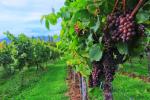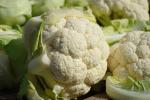H2020 ECOBIOMASS Project: Achieving unique wines through an efficient production process
- Type Project
- Status Filled
- Execution 2019 -2022
- Assigned Budget 1.003.835,00 €
- Scope Europeo
- Main source of financing Horizon 2020
- Project website ECOBIOMASS
In the EU, wines of origin are products with Protected Designation of Origin (PDO). The efficient production of distinctive wines is challenging, as their unique aromas are due to the role of indigenous microorganisms during the winemaking process. However, acquiring these microorganisms is problematic, as their growth requires specific bioreactors and nutrients that are either unavailable or do not meet the desired requirements.
The EU-funded ECOBIOMASS project is a unique solution that uses selected indigenous microorganisms to produce customized wines. This solution offers a selection of the best indigenous microorganisms, the installation of specific bioreactors superior to those currently on the market, and the provision of nutrients. The project will introduce the solution in Europe and South America.
Today, it is very difficult for wineries with a Designation of Origin to achieve efficient processes for producing unique wines. This is because producing unique aromas in a wine requires the use of native microorganisms, and the large-scale growth of these microorganisms requires specific bioreactors and nutrients that are currently unavailable to the wine industry or do not meet the desired automation, sensitivity, and price requirements.
LEV2050 has developed ECO-BIOMASS, the only solution on the market for efficiently producing personalized wines using selected indigenous microorganisms. It includes the selection of optimal indigenous microorganisms, the installation of dedicated bioreactors at the client's facilities, and the supply of nutrients. The main innovation of ECO-BIOMASS is the superiority of its patented bioreactors compared to those on the market, in terms of automation, traceability, and price.
The objective is to introduce the LEV2050 wine production into key markets in Europe (Spain, France, Italy, and Portugal). The marketing plan in these markets will have a prescriptive effect on the remaining producing countries, including the US, preparing them for future stages of the LEV2050 marketing plan.
Scaling up native microorganisms to create personalized wines. The uniqueness of wine aromas depends on the microbes used during its production. An EU-funded project has designed bioreactors to create them on a large scale. Wine has long been a fundamental element of European culture. Many wines of European origin are protected designation of origin (PDO) products, meaning that all stages of the production process must take place in a specific region.
The aromas and flavors of each wine depend on the microorganisms (yeasts and bacteria) present during production, which are unique to the local environment. Because these microorganisms are difficult to produce on an industrial scale, creating unique, newly protected wines can be challenging. The EU-funded ECOBIOMASS project created a completely novel solution to this problem of scale: bioreactors capable of growing the right microorganisms in large volumes. "We wanted to give wineries, and any company in general, the ability to employ their own microorganisms and create a distinctive signature," explains Miguel Romano, R&D Director at LEV2050. "Using unique microorganisms in combination with our patented bioreactors also helps make the entire process more sustainable and cost-effective," adds Romano, who coordinated the ECOBIOMASS project.
Bioreactors are the only solution currently available in the wine industry that allows for the industrial scaling of native microorganisms. Creating the Right Environment for Microorganisms to Thrive First, the desired organisms are selected and studied from the winery's vineyard. "To create a hallmark, we first isolate, identify, and finally characterize their virtues and abilities," Romano explains. "To do this, we select those that are genetically most distant." Native microorganisms must have the right fermentation characteristics for the specific wine being produced. But another sought-after characteristic is organoleptic behavior: how the final product stimulates each of the human senses. Once selected, the microorganisms are placed in the bioreactors, along with specific nutrients. "We study each of the microorganisms and create a custom-made culture medium," Romano says. The reactors are set up with optimal conditions for the organisms to grow up to ten times the initial biomass.
The overall process creates unique, high-quality wines that can achieve the PDO seal of differentiation. Trials at European Wineries: The team initially contacted wineries with a strong identity linked to their terroir, reflected in their respect for the environment and sustainability. Successful trials were conducted in France, Italy, and Portugal, as well as with prestigious wineries.
The most important result, Romano affirms, was customer satisfaction, based on the trust placed in the ECOBIOMASS team and the use of the bioreactors. "They were very satisfied with the cost savings this technology offers, its ease of use, and the spectacular resulting wines they obtained," Romano notes. "The bioreactors and culture media provide fresh yeasts, with great vitality that is evident in the wines, along with cleanliness, expressiveness, and, thanks to the use of native yeasts, originality," he adds. The ECOBIOMASS team now aims to consolidate and increase the number of clients in Europe. "We would like to thank the European Commission, as through this project we were able to introduce our philosophy to Europe, something we longed for," Romano comments.
- INBIOLEV SL (INBIOLEV SL)







